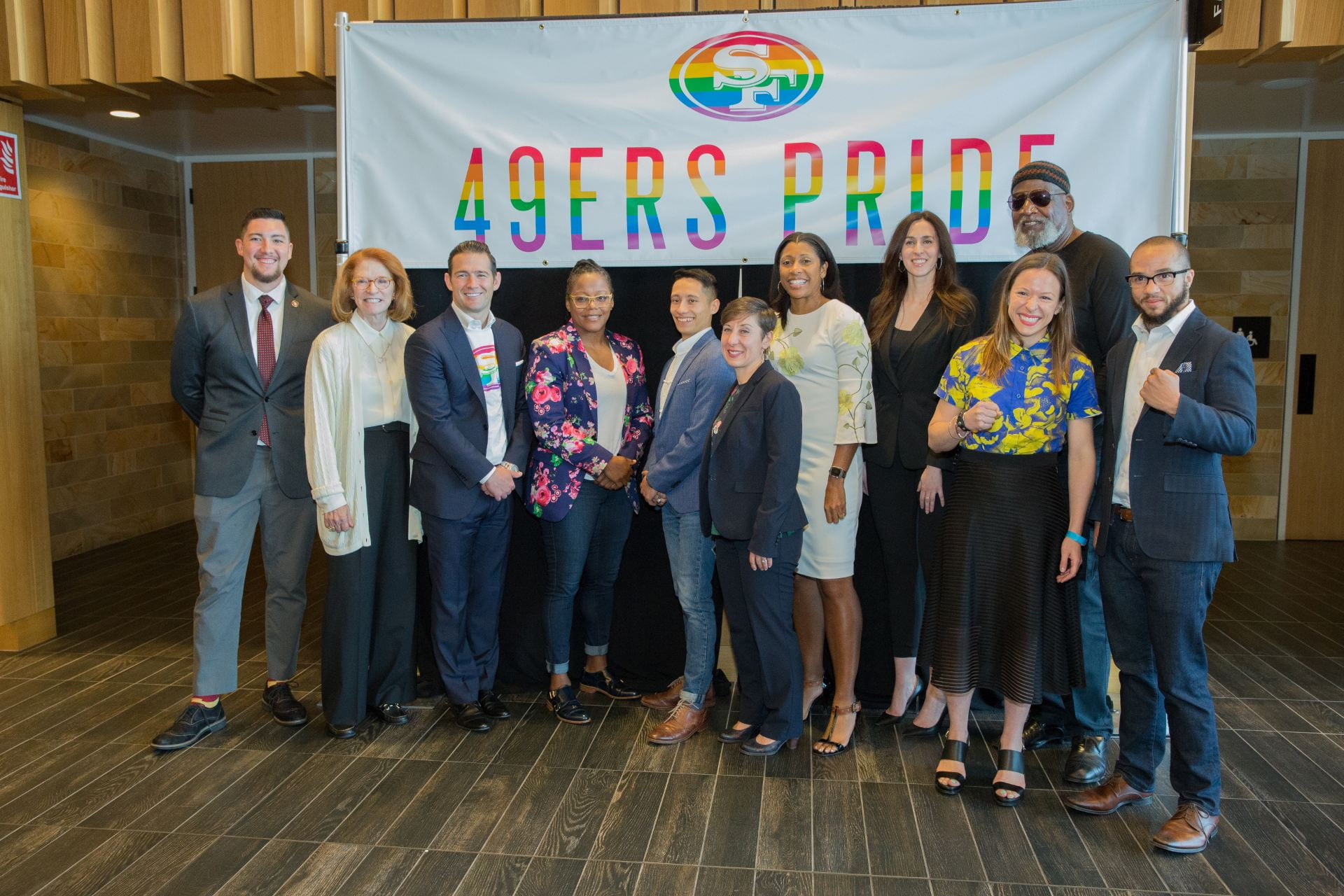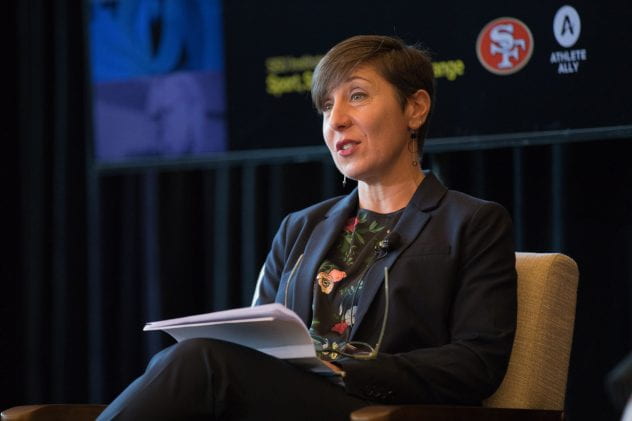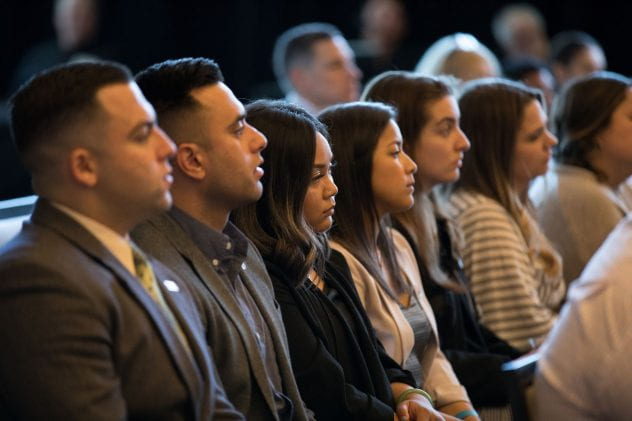
San Jose State University’s Institute for the Study of Sport, Society and Social Change in partnership with the San Francisco 49ers hosted Words to Action: LGBTQ+ Activism in Sport May 29, at Levi’s Stadium 501 Club. Photo by David Schmitz
San Jose State University’s Institute for the Study of Sport, Society and Social Change and the San Francisco 49ers cohosted Words to Action: LGBTQ+ Activism in Sport May 29, at Levi’s Stadium 501 Club. During the event, Interim Provost Joan Ficke offered welcome remarks, followed by Harry Edwards, ’64 Sociology, ’16 Honorary Doctorate, who founded the Olympic Project for Human Rights at SJSU in the 1960s.
“In every place, I’ve functioned I have found LGBTQ individuals contributing,” Edwards said. “Their presence has seldom been affirmed and embraced. They have been denied affirmation and respect, denied their dignity and humanity.”
During the event, SJSU Professor of Sport and Exercise Psychology and Interim Chair of the Department of Kinesiology Tamar Semerjian spoke about her recent research in conversation with Anne Lieberman, director of policy and programs for Athlete Ally. Semerjian’s work on “Making Space: Transgender Athletes” has been published in a new anthology, Sex, Gender and Sexuality in Sport: Queer Inquiries.
“Sport is not fair,” said Semerjian. “We want to see fairness in sport. I played rugby. I’m 4’11. In sport certain body types are going to give us an advantage. Half of the folks in the NBA have genetic advantages. As a society, we don’t worry about that for men. But when trans women want to play women’s sports, there is a narrative that it is unfair.”

Professor and Interim Chair of Kinesiology Tamar Semerjian discussed findings from her latest research on making space for transgender athletes during the Words to Action event on May 29 at Levi’s Stadium. Photo by David Schmitz.
She noted that in her research she found that trans men are not often called out as having advantages the way trans women are.
“Trans athletes don’t go through what they go through to have an unfair advantage,” she said. “Trans women are accused of trying to get an advantage and find a place where they can dominate. We don’t have any evidence of that.”
Semerjian said a lot of school policies make trans athletes prove that they are what they say they are.
“The only criteria should be what you say you are and who you say you are,” she said. “Trans folks need a place to play. We need to make space.”
The event featured voices of LGBTQ+ community members and allies, including Patricio “El Cacahuate” Manuel, the first transgender boxer in the U.S.; Phaidra Knight, Rugby Hall of Famer and U.S.A. Rugby Board member and founder of PeaK Unleashed, and Ezra Baeli-Wang, who led a movement against North Carolina state law HB2 as a student.
While Manuel, who identifies as a black man who is transgender, has been touted as the first transgender professional boxer in the U.S., he said “there have been LGBTQ people since the beginning.”
“We are nothing new. We have always been here. My people have existed since humans have existed,” he said. “And we have always been playing sports, but we just haven’t had the visibility. We were told to be quiet or told not to talk about it.”

Guest who attended the Words to Action event listen intently to panelists and speakers. Photo by David Schmitz
Manuel, who discovered boxing at age 16 and won five amateur championships before transitioning, said he is willing to be hated by others to “live his truth,” and talked about the importance of allies in the fight for LGBTQ rights.
“We need to use the power of allies because it can make things happen,” he said. “We are coming up against doors that you have the power to unlock.”
Knight, whose nonprofit cultivates youth leadership and development through sport, said the movement needs to start with coaches and board rooms.
“If you can’t emotionally, mentally be yourself, you’re not going to be able to physically manifest your true potential,” said Knight.
Baeli-Wang found himself an ally at a young age when his mother came out when he was 11 years old.
“I only knew that my parents would be getting divorced,” he said. “I have witnessed first-hand the destructive power of a society that forces people into lives that hide or deny their true selves. I didn’t want to be complicit in that, so I became an ally.”
As a student at the University of North Carolina, Chapel Hill, he also found that he had a voice to help others when the state passed HB2, a law to prohibit transgender people from using their bathroom of choice.
“There are certain people who will not listen to someone from a particular community because they possess a certain trait,” he said. “If those people choose to listen to me because I am heterosexual and cisgender, then it’s on me to use that privilege to amplify that message because LGBTQ+ people deserve to be heard.”
Before the end of the event, San Francisco 49ers President Al Guido announced the organization’s new 49ers Pride fan club.
“Thank you to those who spoke and inspired us today,” he said. “I was moved all day. Some of the statistics and stories shared are just staggering. It shows how much work we have left to do.”
